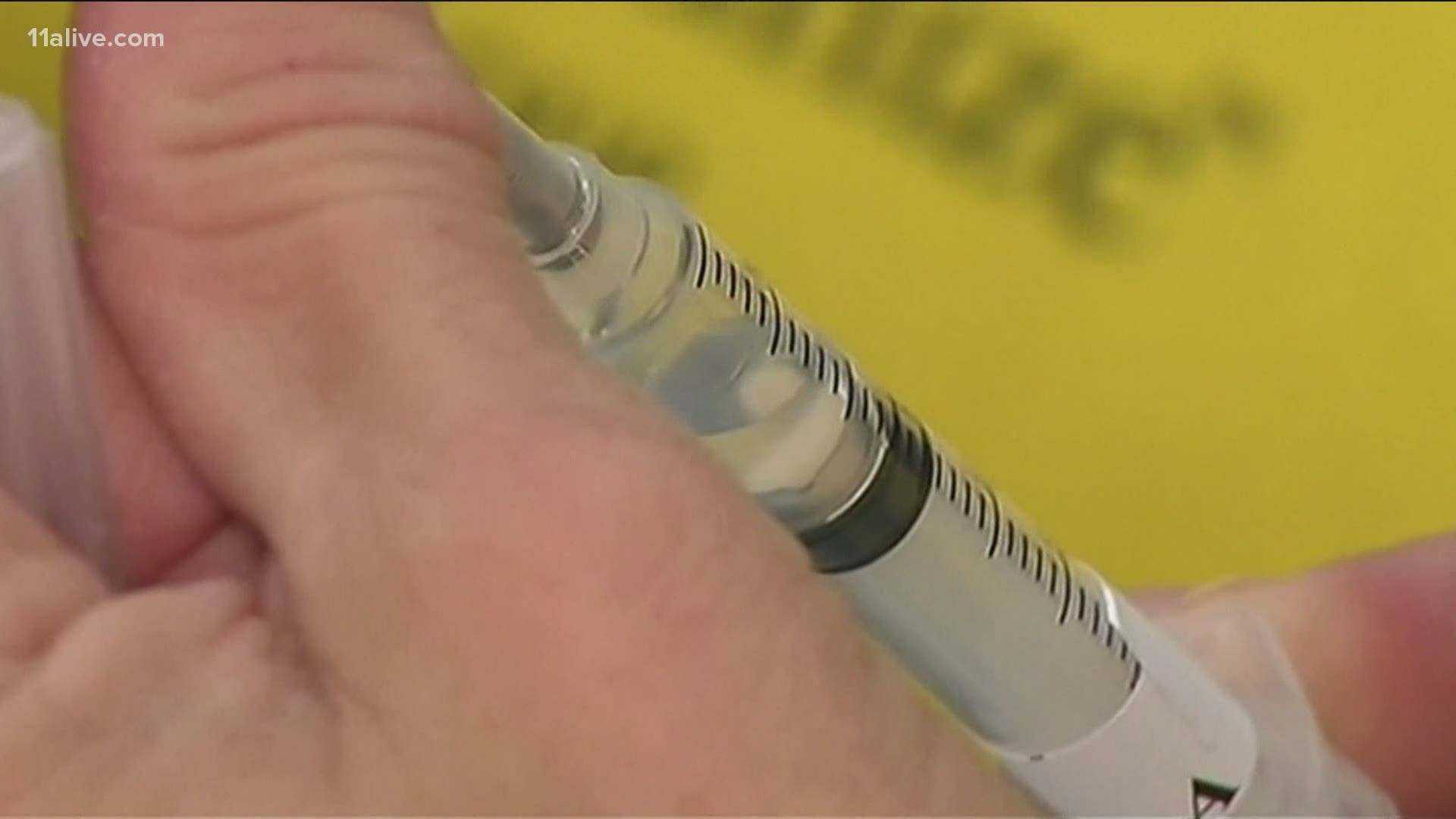ATLANTA — More than 14,000 people have volunteered to be injected with a small amount of coronavirus as part of a trial to help find a vaccine for the virus.
It's called a "human challenge trial," and it could offer a way to speed up the fight against COVID-19 as part of the push to getting back to normal life. But while the rush to create a vaccine is a high priority, not everyone is on board with this process, arguing there are serious ethical issues that need to be considered.
Under usual circumstances, the path to a viable vaccination can take months or years. But with the COVID-19 pandemic, some have begun pushing for these human challenge trials to speed up the process. These types of trials would involve intentionally infecting participants with a mild or medium strength version of virus - possibly man-made - to test vaccines. Supporters say it could lead researchers to develop a vaccine months faster, potentially saving thousands of lives.
So far, the 14,000 willing participants have created an advocacy group to see it happen, and 35 bipartisan members of Congress have asked regulators to consider the trial.
Critics, however, point to factors like hospital space and protective equipment, volunteers wanting to leave the study, and the historic perception of these trials, in which experiments were performed on captive or disabled populations without consent.
While these participants would have to give consent, critics also point out there's no widespread agreement on coronavirus treatments, mortality rates and long-term effects of the virus.
The Food and Drug Administration has never allowed a human challenge trial for a new disease without a cure.
The FDA said in a statement it could expedite vaccine development, but it also raised potential scientific and ethical issues. The administration said it would work with those interested to evaluate those issues.
Right now, there are no plans for a human challenge trial in the United States, but efforts have started in London and Switzerland to make it happen.
The world health organization has also released information on how it might be ethically acceptable to do them.
Meanwhile, any final decision in the United States would mostly fall to the FDA.
11Alive is focusing our news coverage on the facts and not the fear around the virus. We want to keep you informed about the latest developments while ensuring that we deliver confirmed, factual information.
We will track the most important coronavirus elements relating to Georgia on this page. Refresh often for new information.

